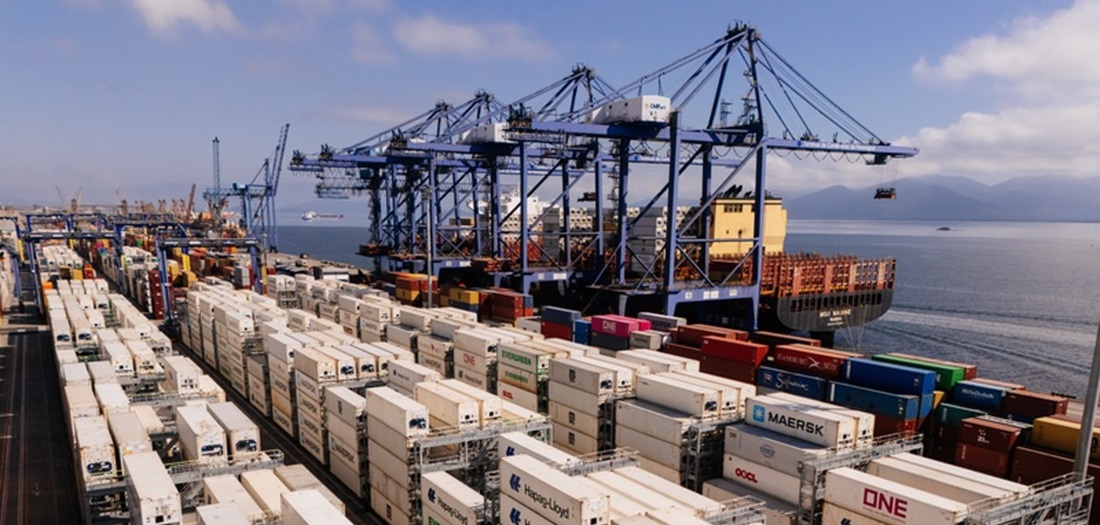
Paranaguá Container Terminal aims to attract more cotton shipments
Oct, 30, 2024 Posted by Gabriel MalheirosWeek 202443
The Paranaguá Container Terminal (TCP) aims to boost cotton exports amid growing diversification efforts for Brazil’s cotton shipments. Currently, cotton exports are largely concentrated at the Port of Santos, but trading firms and logistics operators are exploring alternative options.
Ports such as Itapoá and Salvador are vying for a share of cotton shipments as alternatives to the São Paulo terminal. In Paraná, TCP is keen not to miss out on this trend.
“Diversifying cotton export routes isn’t optional; it’s a necessity. Without it, cotton exports would be limited, falling short of target projections,” explains Giovanni Guidolim, TCP’s commercial, logistics, and customer service manager.
In 2023, the Paranaguá terminal shipped 50,100 tonnes of cotton. Between January and August 2024, volumes reached 22,000 tonnes. With Brazil now a global leader in cotton exports, the terminal’s management believes there’s room for expansion in this segment.
The chart below shows the evolution of the pace of Brazil’s cotton exports since January 2022. The data is from DataLiner.
Cotton Exports | Jan 2022 – Aug 2024 | TEUs
Source: DataLiner (click here to request a demo)
According to the National Supply Company (Conab), total cotton exports for the 2024/25 season are expected to reach 2.85 million tonnes, with a forecast of 2.86 million for 2025. TCP projects year-end growth in this scenario, with an ongoing upward trend.
“We began expanding cotton operations in Paranaguá a few years ago. After strong volumes last year, we anticipate year-on-year growth. There’s demand for additional players in cotton exports,” says Guidolim.
Cotton bales arrive at Paranaguá by truck, where they are containerized for export at the port’s hinterland storage areas before being loaded onto vessels.
Most of TCP’s exported cotton originates from Mato Grosso, with expectations of increasing volumes as cotton production in the region ramps up to meet international demand.
Data from the Mato Grosso Institute of Agricultural Economics (Imea) estimates 1.79 million tonnes of cotton exports for the 2023/24 season—a 5.66% increase from the prior year. Projections for 2024/25 are even higher, at 1.99 million tonnes, marking an 11.16% rise.
“We’re aiming for over 50% growth in cotton. That’s what we’re projecting and targeting,” Guidolim adds.
He notes that the cotton supply chain’s move away from Santos aligns well with Paranaguá’s logistics, where trucks transporting cotton can return loaded with fertilizers, optimizing freight costs.
Paranaguá is a primary entry point for imported fertilizers into Brazil. Between January and September 2024, 7.84 million tonnes of fertilizer arrived at the port, an 11% increase from the same period in 2023 (7.05 million tonnes). This makes the terminal Paraná’s leading hub for fertilizer imports by volume.
TCP’s focus on serving diverse markets, especially Asia—Brazilian cotton’s largest international buyer—further strengthens Paranaguá as a top export point.
“Paranaguá has long been strategic for fertilizer truck flows, making backhaul freight even more competitive,” Guidolim says. “When you have such a concentration of services at a terminal, it simplifies operations for exporters. We are able to offer a ‘one-stop-shop’ solution, centralizing logistics in a single provider.”
TCP
According to the National Waterway Transportation Agency (Antaq), TCP is currently Brazil’s second-largest container terminal by volume, following Santos. Its storage capacity is approximately 45,000 TEUs.
Between 2022 and 2024, TCP invested R$370 million to enhance infrastructure, purchase equipment for cotton and other types of cargo, and modernize key facilities, including truck entry/exit routes, access gates, and rail infrastructure.
“While the railway currently plays a limited role in cotton exports, it’s worth exploring, similar to other port terminals,” says Guidolim, noting that Paranaguá has direct rail access to the customs terminal.
TCP’s partners have made specific investments in cotton logistics assets, including warehouses and storage areas for receiving and containerizing cotton.
Source: Globo Rural
-
Trade Regulations
Jul, 06, 2022
0
Presidential decree allows lithium trade with no prior authorization
-
Economy
Feb, 06, 2023
0
January closes with a drop in imports, but it’s still too early to talk about trends, says AEB
-
Other Cargo
Oct, 09, 2023
0
Cotton industry innovations help Brazil gain share in international market
-
Other Cargo
Jun, 27, 2023
0
Egg exports from Brazil grow 93.1% in 2023



